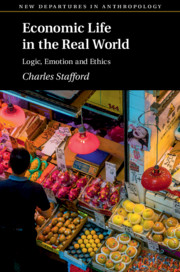Book contents
- Economic Life in the Real World
- Economic Life in the Real World
- Copyright page
- Dedication
- Contents
- Preface
- Acknowledgements
- One Introduction
- Two Decisions
- Three Substantivist Economic Psychology
- Four Life Plans and Learning
- Five Self-Education as the End of Economic Life
- Six The Politics of Cognition
- Seven Number and Structure
- References
- Index
Five - Self-Education as the End of Economic Life
Published online by Cambridge University Press: 13 December 2019
- Economic Life in the Real World
- Economic Life in the Real World
- Copyright page
- Dedication
- Contents
- Preface
- Acknowledgements
- One Introduction
- Two Decisions
- Three Substantivist Economic Psychology
- Four Life Plans and Learning
- Five Self-Education as the End of Economic Life
- Six The Politics of Cognition
- Seven Number and Structure
- References
- Index
Summary
takes up the issue of human ‘self-education’ first raised in the Preface. The Marxist theory of self-education is compared with the approach of utilitarians/consequentialists to human agency that underpins (at least to some extent) much of the recent work in the field of economic psychology. It is argued that these two approaches are not as incompatible as is often assumed. More broadly, the author engages with recent work in the psychology of cooperation, which intersects in important ways with both Marxist and consequentialist approaches.
- Type
- Chapter
- Information
- Economic Life in the Real WorldLogic, Emotion and Ethics, pp. 115 - 151Publisher: Cambridge University PressPrint publication year: 2020

